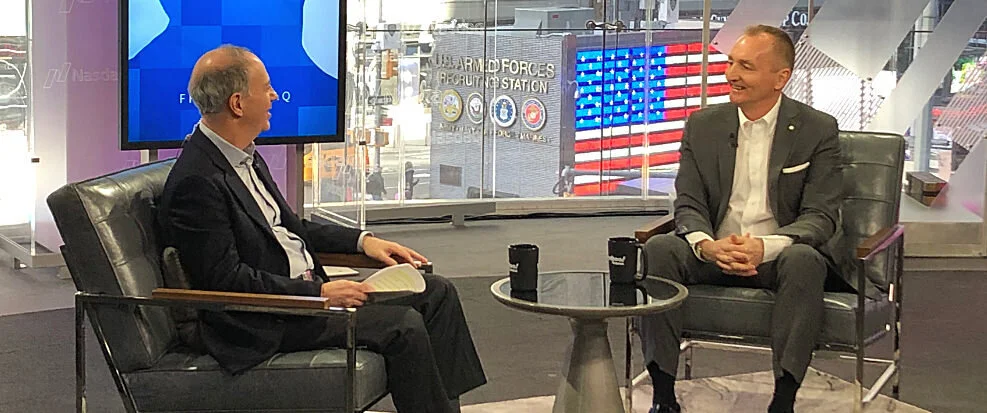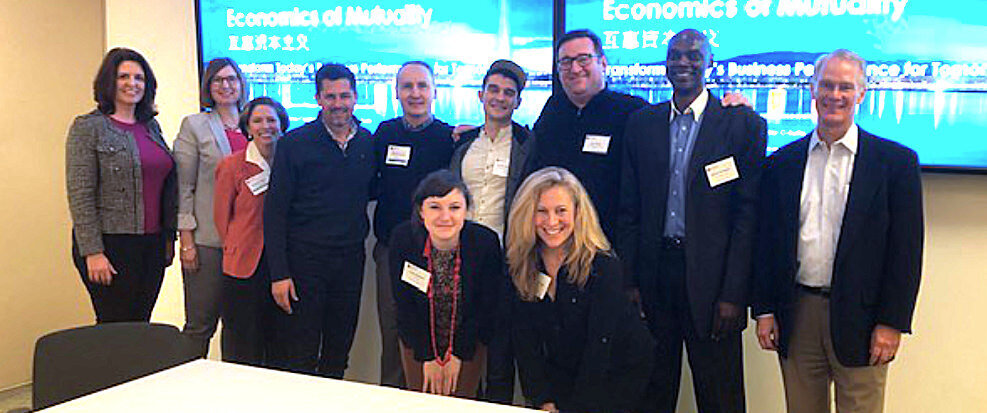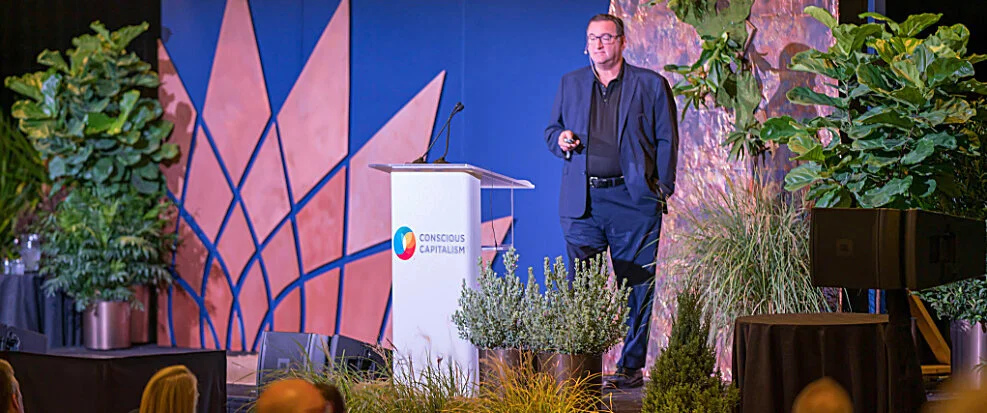Bruno Roche Speaks About EoM at the AVPN Virtual Conference
Published June 2020
In June, Bruno Roche spoke at the Asian Venture Philanthropy Network (AVPN) Conference, which had been scheduled to take place in Singapore, but moved online due to the global pandemic. The virtual session in which Bruno took part attracted over 600 participants. It was hosted by Steven Serneels, CEO and Board Member of the European Venture Philanthropy Association (EVPA). Selected highlights of Bruno’s contribution have been transcribed below.
After the event, Alliance magazine published a write-up of the session following a pre-conference poll in which it was ranked as the session readers would be most interested in hearing about.
“We have a duty and an opportunity to implement systems change. Six months ago, this conversation would have been very different, but today, because of Covid-19, we have seen a number of dramatic changes in the world. The way we work, the way we interact and the way we shop – and also how business operates. The crisis has had a number of impacts. Some of them are positive, such as reduction in pollution. Some of them are negative, such as destroying relationships, shattering businesses and creating tensions between nations.
Perhaps surprisingly, what has kept the system alive has not been the investment bankers or overpaid business people. It has been the ‘ordinary’ people – nurses, doctors, delivery drivers, teachers and farmers. The system has not been rescued by Wall Street, but by government, which has once again become a central player after decades of withdrawal.
In China, there is a concept that crisis creates a time of danger and a time of opportunity. King Solomon around 3,000 years ago said that ‘To everything there is a season and a time to every purpose. A time to break down, and a time to build up.’ We are at a stage now where we can choose. There is both a duty and an opportunity for business leaders, investors, management schools and policymakers.
The challenge is twofold. Firstly, to reposition the corporation positively in ways that reflect the dramatic changes we have seen in society and the environment. Secondly, to reset business on the right foundation of practical application. Business and entrepreneurship existed before capitalism and will probably exist after capitalism. Capitalism is a very short parenthesis in the history of business and entrepreneurship.
Over the last 50 years, capitalism has been a source of efficiency for business and a source of value creation for society. But over the last 30 years, the system has started to deteriorate and lose efficiency. We are at a stage now where the financial form of capitalism has become a source of inefficiency and value destruction.
I have been the Chief Economist at Mars for the last 15 years. Before the 2008 global financial crisis, we began thinking about how value creation might be optimized and long-lasting. We developed a concept called the Economics of Mutuality which is based on five pillars:
Purpose as strategy: Purpose is not a communication asset, not a way to bring people together, but an asset that can help business improve value creation.
Ecosystem mapping and orchestration: Business does not operate without a number of critical stakeholders that are material to its purpose. The role of business is not to control and dominate its ecosystem, but to map and orchestrate its ecosystem – to develop reciprocal relationships instead of power relationships.
Non-financial performance metrics: It is difficult to manage if you don’t measure. Currently, we primarily measure financial performance – financial capital. Business needs financial capital to operate, but business also needs other forms of capital – social, human and natural. We have developed a very sophisticated model to measure and manage financial capital, but we have not developed a similar model to manage these other forms of capital.
Mutual profit: If the purpose of the company is to maximise shareholder value, the financial P&L is perfectly aligned with the purpose. But if the purpose of the company is something else – to develop profitable and scalable solutions to the problems of people and planet – and not to profit from creating problems for people and planet – then we need to realign and have a new mode of profit construction called mutual profit.
Expanding leadership: training and education are critical components to reshape management within companies along these new lines.
It is our contention that when a company starts to manage its operations according to Economics of Mutuality principles, it not only has a better impact on society and the environment, but it also ends up with better financial performance. This should not surprise us because when a company mobilizes more resources within the ecosystem in which it operates and develops reciprocal relationships with other critical stakeholders, it adds resources to its business. When you add resources, you should expect higher returns. And this is exactly what we have seen over the last 15 years of research and practical implementation.”
Note: the transcription has been edited for space and clarity.




